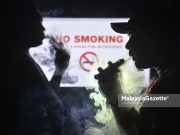Earlier this month, our unit received a police referral for age estimation in an alleged abuse case.
Riya and Mira (not their real names), both under six years old, had been abandoned by their mother shortly after their father’s incarceration for a drug-related offence.
Left in a filthy, dilapidated house without food or essentials, their plight prompted a concerned neighbour to contact authorities.
During their hospital stay, Riya and Mira revealed alleged daily physical assaults by their mother. Visible scars on their faces and bodies corroborated their claims.
Despite these allegations, the sisters managed to smile and laugh, seemingly unaware of the betrayal by the person expected to love them. Regrettably, this was not our first encounter with such a case.
Riya and Mira are among thousands of children reported annually as victims of abuse and neglect in Malaysia.
The Ministry of Health Malaysia defines child abuse as encompassing physical and emotional mistreatment, sexual abuse, neglect, negligent treatment, and various forms of exploitation.
Statistics over the years have shown a consistent upward trend in reported cases.
In 2023, the Social Welfare Department (JKM) managed at least 5,000 child abuse-related cases, predominantly involving physical abuse, sexual assault, and neglect.
Although these victims received the necessary protection, the abuse endured had negative impacts on their long-term mental health, well-being, and psychological development. Alarmingly, many child abuse cases go unreported.
Childhood experiences crucially shape our behaviour and who we become. The environment we are raised in influences many aspects of our lives, and childhood difficulties can profoundly impact a child’s mental and emotional well-being.
Childhood abuse is linked to various psychological issues and psychiatric conditions, including depression, aggression, hostility, anger, fear, anxiety, and personality disorders.
According to a study published in 2013, children, particularly boys, may express these emotions through physical aggression and verbal bullying. Girls, on the other hand, may internalize their feelings, leading to depression and social withdrawal.
Abused children are more likely to exhibit physical or verbal aggression later in life, perpetuating an endless cycle of abuse. These individuals are at higher risk of encountering social problems such as smoking, substance abuse, and involvement in gang activities too.
According to American Society for the Positive Care of Children (American SPCC), children who experience abuse and neglect are approximately nine times more likely to become involved in criminal activity when they grow up.
There is also a strong statistical link between child maltreatment and parental substance abuse. In 2019, the percentage of child maltreatment victims with caregivers who abused alcohol or other substances increased, indicating that children in these environments are at a higher risk of developing similar behaviours as they grow.
Thankfully, all is not lost. As we celebrate our 67th Independence Day, we remain hopeful and encourage every Malaysian to be vigilant for signs of abuse that may be occurring in the community. We urge everyone to be observant of red flags and brave enough to stand against injustice.
Thanks to Riya’s and Mira’s vigilant neighbours, they are here today to share their stories. Every child deserves a healthy and nurturing upbringing. Our collective responsibility is to protect and ensure a safe, healthy environment as we strive towards a better Malaysia.
A truly Merdeka Malaysia.
By Dr Rabi’ah Al-Adawiyah Rahmat and Dr Amir Hazwan Abdul Rahim
The authors are Forensic Odontologist Specialists at the Faculty of Dentistry, Universiti Malaya.

















